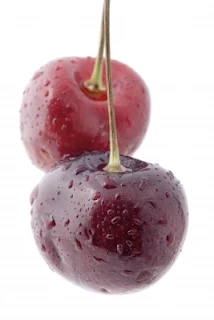Understanding how to reduce
uric acid naturally isn't just healthful however may also help you save money.
Gout is a physically debilitating situation and it may also be quite
economically draining. Lots of dietary specifications and many healthcare
prescriptions make Gout a costly situation to have.
Not everybody can
afford the strict health care way of curing Gout, although. Luckily, there's
also several, natural and low-cost ways how to reduce uric acid in your body.
You should take note that it does not always mean that because they are natural
that they're less efficient. In fact they might be better since they don't have
a bad effect on your kidneys and liver compared to pharmaceuticals.
Some
Natural Treatments to Reduce Uric Acid:
1. Cherries. Cherries. Cherries - There has been several studies and lots of testimonies concerning cherry usage
as a way to minimize uric acid. Gout-ridden men and women who've added cherries
in their diet has been seen to experience less frequent flare-ups of the
afflicted joints. Many people with gout have seen more gout relief in consuming
cherry extracts than having the cherry fruit itself. Cherries are low-cost (in
many western countries) and organic making for a healthier and inexpensive
addition to your diet plan.
2. Eat the vegetables; just skip the beans -
Eating greens, particularly those rich in Vitamin C like broccoli and potatoes
may become a natural method to reduce uric acid. Fibrous vegetables like beets
and turnips are also experienced to relieve the pains of gout. Greens are
usually inexpensive and are really surprisingly tasteful. Also, they are
probably the most natural thing you will get your hands on when preparing a diet
plan for gout relief.
Beans, although naturally healthy, should not be
any aspect of a gout patient’s diet. Beans include concentrated amounts of
purine that might trigger an increase in the amount of uric acid in your
body.
3. Quench yourself - One thing to keep in mind: the lower quantity
of water in the body, the better the concentration of uric acid in the body.
Uric acid is h2o soluble, which means it dissolves in water. Water to drink can
significantly and naturally help a gout patient by controlling the levels of
uric acid and flushing the excess out of your body.
Do not just gulp
bottle after bottle, although. You will simply end up releasing them quickly.
Sip it slowly and in a small amount each hour and allow your body normally
absorb the water in your body system.
4. Back to Basic principles - By
basic I mean alkaline. Since Gout is triggered by high uric acid levels, that
result to its crystallized form being deposited to several joints, increased
alkaline in your diet plan for example alkaline water or a home made baking soda
solution might help the gout patient to reduce uric acid levels. Three to four
teaspoons every day (or as suggested by the doctor) of sodium bicarbonate
dissolved in water ought to be enough to reduce uric acid concentration in your
system.
Alkaline water can be bought in some water purifiers and h2o
suppliers, and it is a safe source of alkaline in the diet plan. Baking Soda is
inexpensive and simple to administer however it might also have digestive
negative effects. It is recommended to consult a doctor 1st before trying this
gout-relieving way.
5. Do not be stingy on the C - Finally, an enough
amount of Vit C might help reduce gout pains and lessen uric acid and the risk
of developing gout. A 2009 study verified that Vit C significantly reduced the
risk of gout in 47,000 men. Another study also confirmed that people who took
1000 mg of Vitamin C had a 34 percent lower risk than those who took
less.
Never forget to drink copious amounts of water. Ingesting
acidic foods and supplements may improve your urine’s pH, putting you at risk of
kidney stones. You may analyze your urine’s pH if you would like be sure of your
safety before improving your vitamin C consumption. It must also be mentioned
that too much Vitamin C intake (above 1000mg for each day) might have unwanted
gastrointestinal effects for example diarrhea .

No comments:
Post a Comment